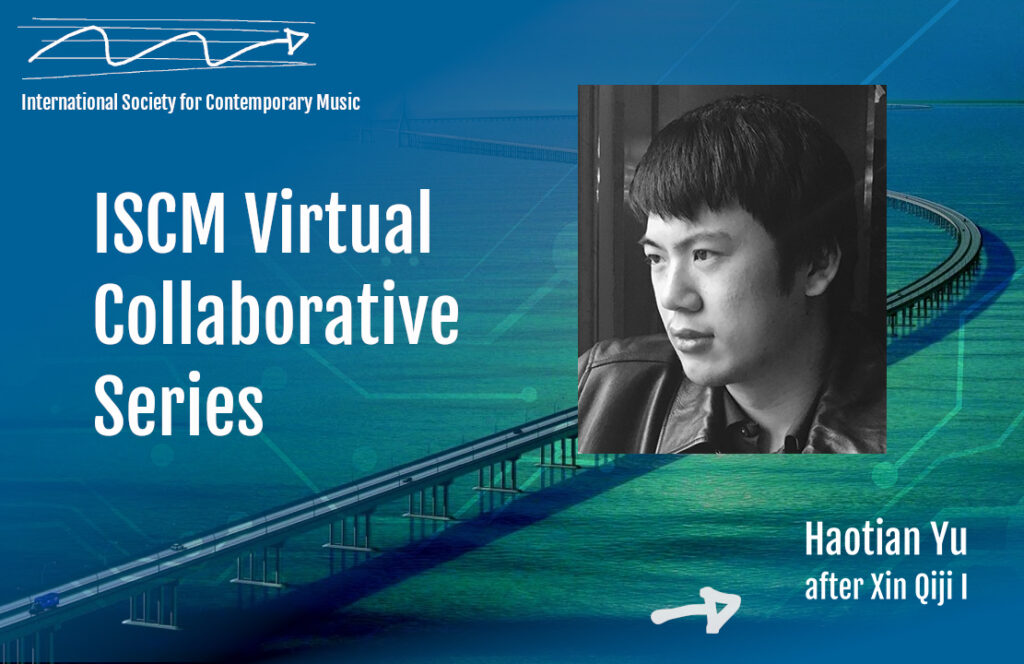Haotian Yu: after Xin Qiji I

The music of Chinese-Canadian composer Haotian Yu (b. 1998) centers postcolonial experience through the specific cultural lens of Chinese tradition. In works for chamber ensemble, electronics, and Chinese instruments, objects of culture—instruments, performance practices, field recordings—are subject to a composed Foucauldian genealogy, in which sonic and conceptual analyses address the ideological and socio-functional dimensions of music. Questions of cultural authenticity, creolization and music as ethnography are foundational to his artistic practice. He is Co-Artistic Director of the Beijing-based AIR contemporary music collective. Collaborators for recent and upcoming projects include AIR Contemporary Music Collective, the Divertimento Ensemble, Ensemble Fons, members of the International Ensemble Modern Academy, OSSIA New Music, the [Switch~ Ensemble] and the Vacuum String Quartet. He is the recipient of five SOCAN Foundation Young Composer Awards and is a 2022 Berlin Fellow at the Akademie der Künste. His music was included in the ISCM Canadian Section’s official submission to the 2021 World Music Days. Haotian Yu currently studies at the Hochschule für Musik und Darstellende Kunst Frankfurt (DAAD Postgraduate Scholarship) with Orm Finnendahl and Michael Reudenbach. From 2016-2020 he studied at the Eastman School of Music (BM with Highest Distinction, Lois S. Rogers full scholarship recipient, Wayne Brewster Barlow, Anthony and Carolyn Donato, Louis Lane, and Bernard Rogers departmental prizes in composition) with Robert Morris, Carlos Sanchez-Gutierrez, Oliver Schneller, and Ricardo Zohn-Muldoon. He served as President for Eastman’s student-run new music organization, OSSIA New Music.
after Xin Qiji I, which was composed in 2018 for the Rolston String Quartet, is the first in an ongoing series of works by Haotian Yu that are inspired by the poetry of Xin Qiji (1140-1207) who lived during the Southern Song Dynasty in China. (The other works in the series thus far are a percussion duo from 2020 and a work for amplified and prepared string quartet from 2021.) According to the composer, “Spoken Chinese, like classical Chinese music for the guqin, incorporates a rich lexicon of subtly differentiated timbres, intricate glissandi, and spacious resonances. Song dynasty ci poetry—originally set to composed melodies, most of which are now lost—has, by virtue of the language’s inherent musicality, a songlike quality of its own. … after Xin Qiji I is one possible “musicalization,” so to speak, of a short and rather whimsical ci. Rhyme and assonance transform into parallel pitch structures; inflections become glissandi; consonants become washes of airy noise; formants are suggested by ephemeral harmonics—the poem, in the spirit of still serenity suggested by its opening moonlit scene, is spoken by the quartet as a timid, whispered song.”
performed by the Rolston String Quartet
